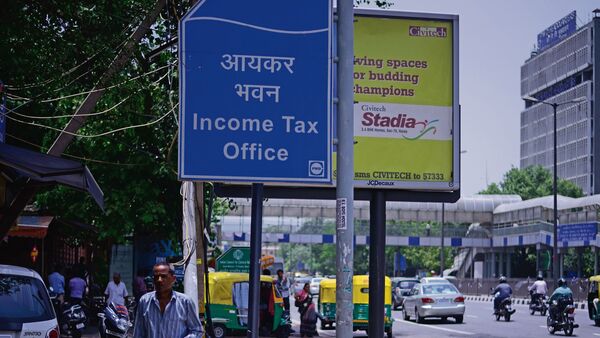NEW DELHI : Foreign investors in unlisted Indian companies may have to pay higher capital gains taxes following a recent Mumbai Income Tax Appellate Tribunal (ITAT) ruling on two conflicting tax provisions that apply to non-resident entities.
While Section 48 of the Income Tax Act allows taxpayers to calculate their capital gains after factoring in the acquisition cost, including exchange rate fluctuations, Section 112 does not. However, in the recent ruling on a plea by Dubai-based Legatum Ventures, the tribunal held that Section 112 would apply.
Tax experts noted that the ITAT ruling could potentially lead to foreign entities being subjected to capital gains taxes in India despite incurring losses in dollar terms and will impact those that have invested directly in unlisted shares or established joint ventures. This ruling may also sour the investment climate, given overseas entities invested over ₹26,000 crore in unlisted stocks in FY22, accounting for more than 95% of the country’s foreign direct investment inflows, according to Reserve Bank of India data.

View Full Image
Legatum Ventures sold shares of privately held Intellecap Advisory Services during the assessment year FY19, claiming a long-term capital loss of ₹3.6 crore in its tax filings based on the formula outlined in Section 48 of the Income Tax Act. However, the tax department disagreed with Legatum’s assessment. Instead, based on Section 112, it determined that Legatum made ₹17.1 crore in long-term capital gains and demanded the fund make additional payments. ITAT ultimately sided with the tax department, establishing a precedent for future cases.
Tax experts said foreign entities now need to be mindful of their higher tax liabilities while selling shares in their unlisted entities. “The recent ruling by the tribunal clarifies the applicability of tax provisions for non-resident companies selling unlisted shares of Indian companies. The decision to apply section 112(1)(c)(iii) over the 1st provision to section 48 is a significant one, and companies should carefully consider their tax obligations when engaging in such transactions,” said Suresh Swamy, partner, Price Waterhouse & Co LLP. “Withholding tax will now need to be computed based on rupee gains even in cases where the non-resident has a capital loss in dollar terms.”
Adverse forex fluctuations present a significant investment risk, particularly in emerging markets. If foreign funds cannot account for these fluctuations, their tax payments could increase substantially, even if their actual gains are negligible or negative. In the case of Legatum Ventures, for instance, this could lead to scenarios where offshore entities face dollar losses while being subjected to capital gains taxes in India. “Seen in the context of melting valuations and likely exits by global investors from their pool of non-performing investments, it’s quite possible that these exits and fire sales could have unintended capital gains tax consequences which investors should carefully assess,” Aravind Srivatsan, tax leader, Nangia Andersen. “Taxpayers, especially non-residents, would play close heed to this ruling and be wary of the exact capital gain tax consequences prior to the consummation of the transaction and accordingly discharge the tax.”
Until now, foreign entities filing their capital gains in India could choose between Section 48 and Section 112, depending on the more advantageous provision in a given case, tax experts said. However, ITAT has now ruled the taxpayer was not at liberty to choose. “We also find no merits in the assessee’s submission that if the case of the assessee is governed under two provisions of the Act, then it has the right to choose to be taxed under the provision which leaves him with a lesser tax burden,” said the ITAT in the judgement dated 15 March. The tribunal also added that Section 112 was a special provision in the Indian tax law while Section 48 was a general provision. Hence, whenever the conditions of a special provision are triggered, the special provision should override the general provisions.
Download The Mint News App to get Daily Market Updates & Live Business News.
More
Less
#Tax #order #raises #foreign #investors #woes
